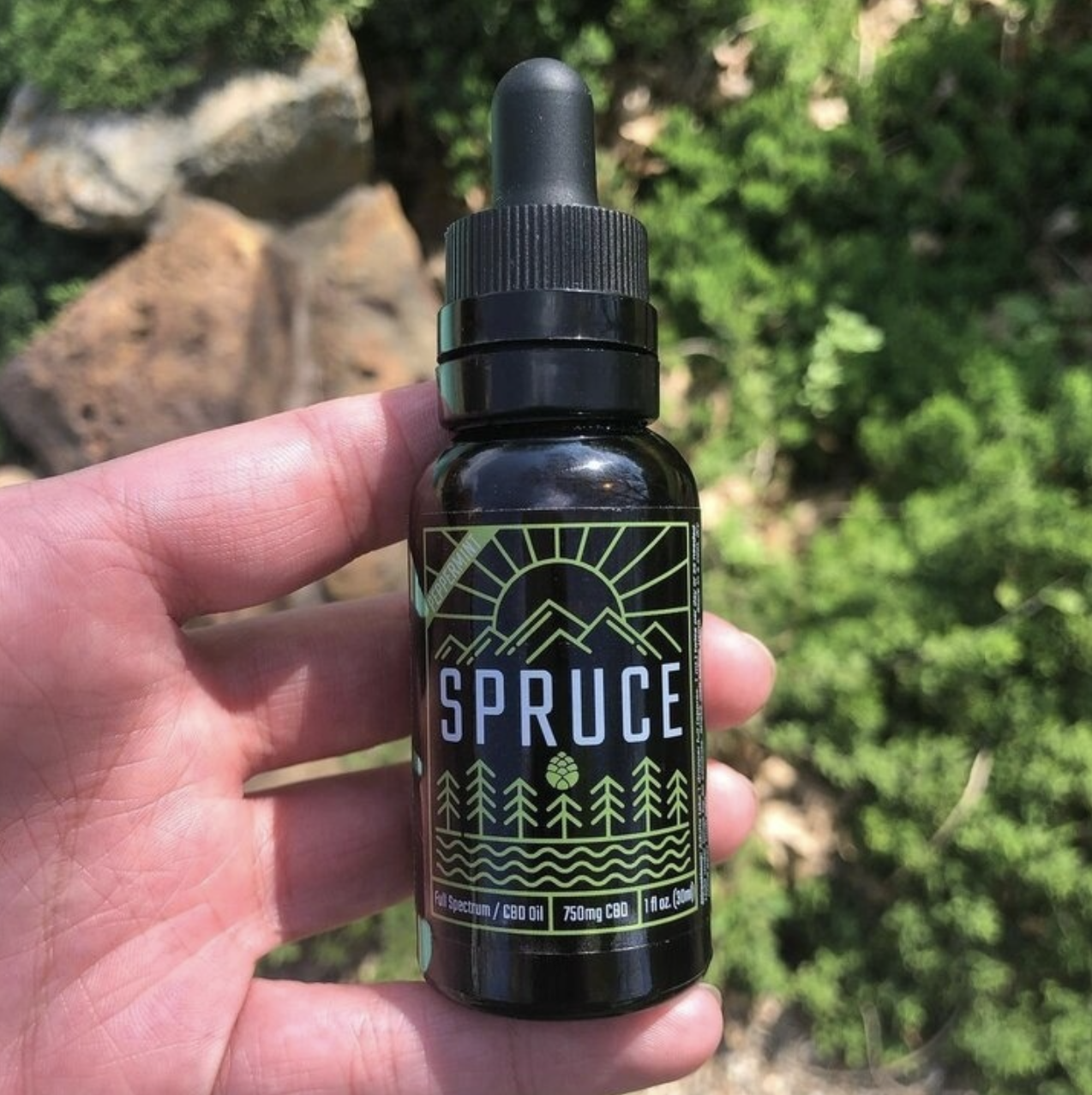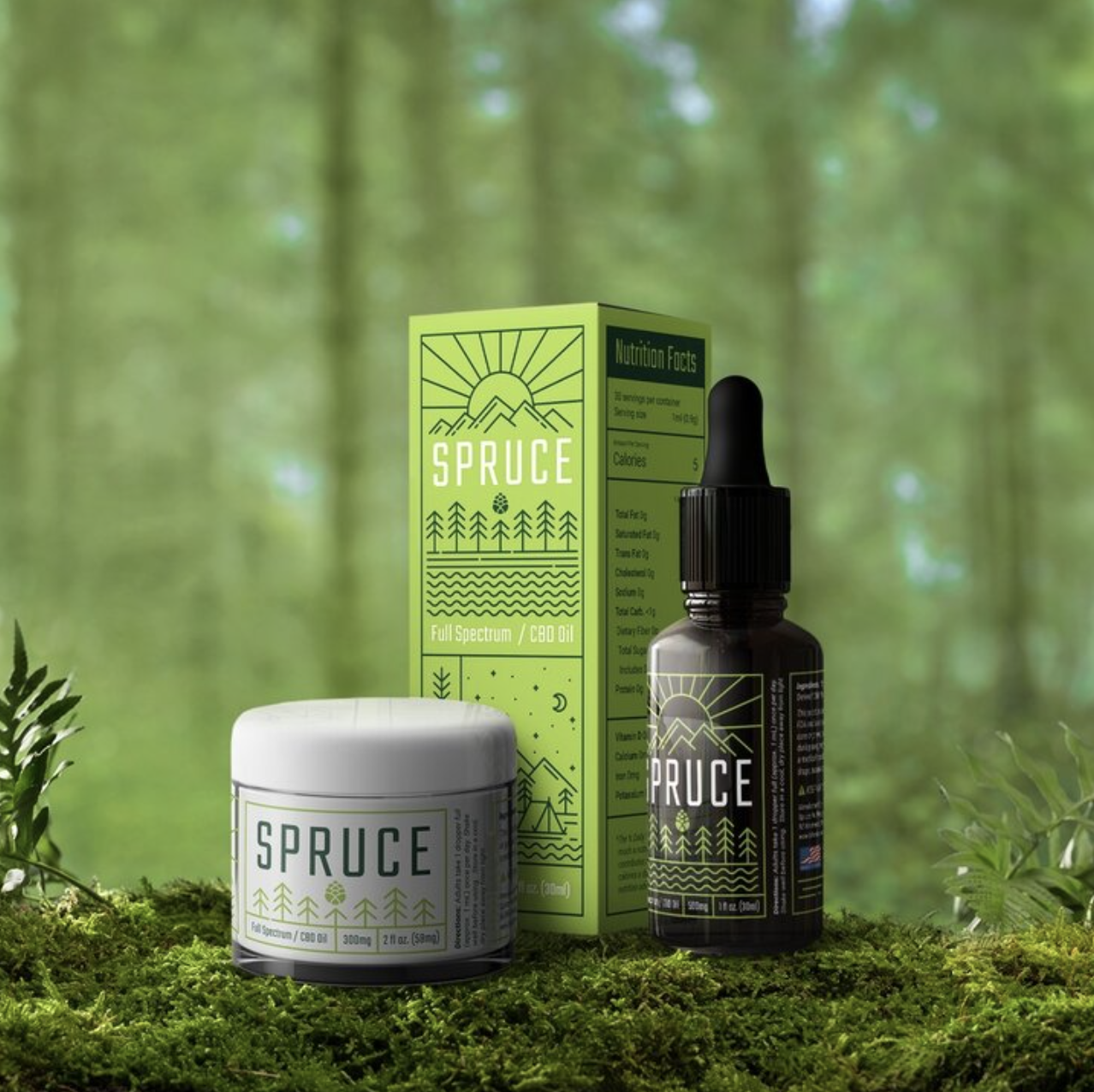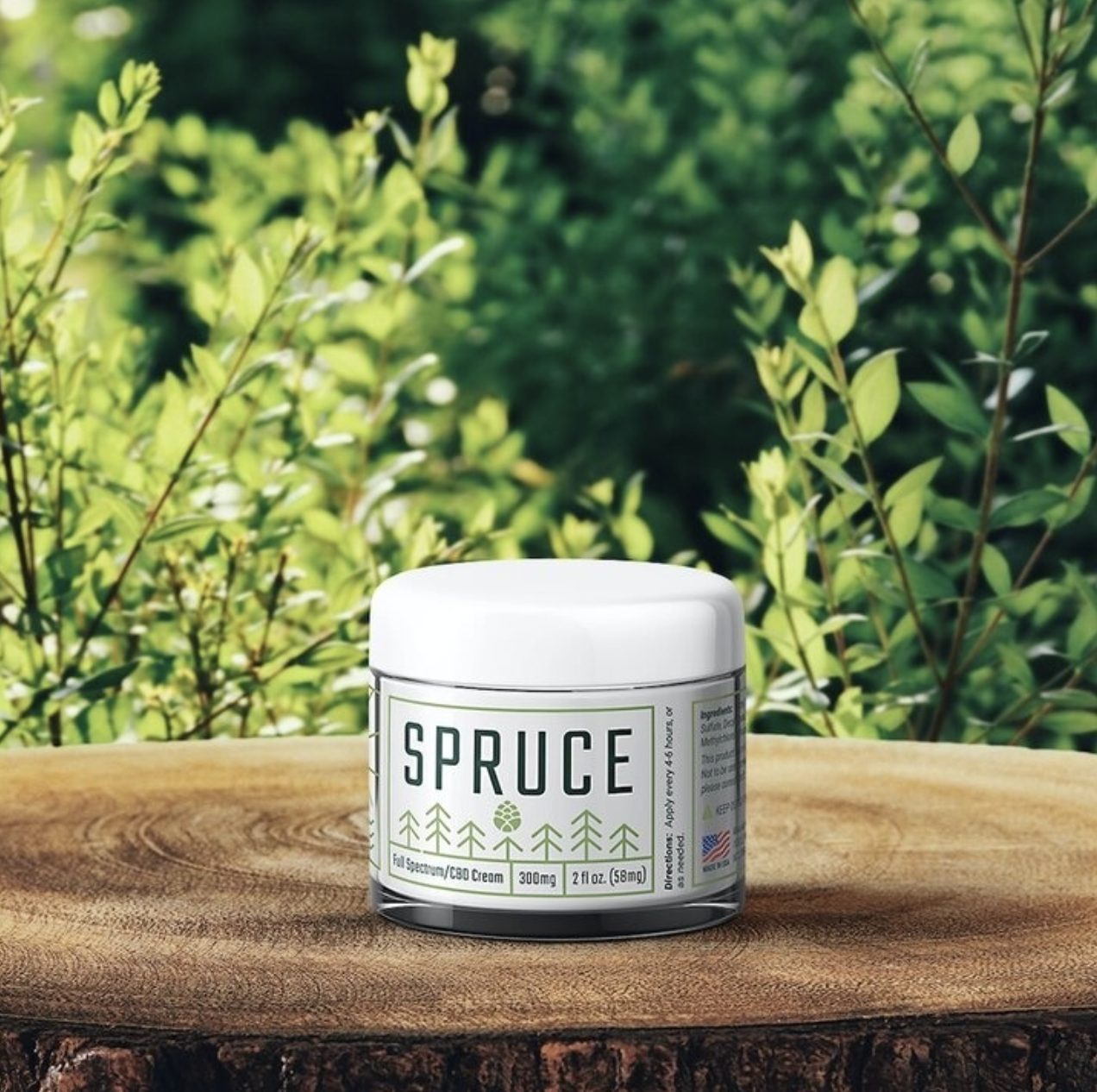What Does CBD Do? | How It Works and Potential Benefits

With CBD use becoming commonplace and sales skyrocketing, it’s easy to wonder, “What does CBD do, and why is it gaining so much attention?”
CBD, or cannabidiol, is one of over 100 cannabinoids found in the cannabis plant and is celebrated for its potential to promote relaxation, manage pain, improve sleep, and even support mental well-being by working with the body’s endocannabinoid system.
As interest in CBD oil continues to grow, it’s important to understand how it works within the body, its potential benefits and risks, the types available, and how to use it safely. In the following guide, we’ll cover all this and more.
What Is CBD?
CBD, or cannabidiol, is a compound derived from the cannabis plant, which comes in two primary varieties: hemp and marijuana.
CBD is most commonly extracted from hemp because hemp contains high levels of CBD and very low levels of THC, usually less than 0.3%. In contrast, marijuana contains lower levels of CBD and higher levels of THC, the compound responsible for marijuana’s psychoactive effects.
CBD is one of the major cannabinoids, which are naturally occurring chemicals found in the cannabis plant that interact with the body’s endocannabinoid system (ECS), a network of receptors that help regulate various functions such as mood, appetite, and pain.
While THC binds directly to these receptors to produce a high, CBD works more subtly, influencing the ECS in ways that may help maintain balance in the body.
Hemp-derived CBD is federally legal, is widely available, and can be used in various products, including oils, edibles, and topicals.
How CBD Works Within the Body
CBD interacts with the human body primarily through the endocannabinoid system (ECS), a complex network of receptors, enzymes, and endocannabinoids that play a vital role in regulating various physiological processes, including mood, sleep, appetite, pain sensation, and immune response.
The ECS consists of two main types of receptors: CB1 receptors, predominantly found in the brain and central nervous system, and CB2 receptors, mainly located in the immune system and peripheral organs.
Unlike THC, which binds directly to CB1 receptors and produces a psychoactive effect, CBD doesn’t bind directly to these receptors.
Instead, it is thought to influence them indirectly by modulating the receptors’ ability to bind with other cannabinoids and enhancing the natural levels of endocannabinoids in the body.
One way CBD is believed to work is by inhibiting the enzyme fatty acid amide hydrolase (FAAH), which breaks down anandamide, an endocannabinoid often referred to as the “bliss molecule” due to its role in promoting feelings of happiness and well-being.
By slowing the breakdown of anandamide, CBD may increase its levels in the body, potentially contributing to improved mood and reduced anxiety.
CBD is also thought to interact with other receptors, such as serotonin receptors, which are involved in mood regulation and pain perception, and TRPV1 receptors, which play a role in inflammation and pain.
Possible Benefits of CBD
CBD’s popularity is soaring, especially among those seeking natural alternatives to traditional treatments, and its versatility is one of its most intriguing qualities. While research is still in its early stages, studies and anecdotal evidence suggest that CBD may offer a wide range of health benefits.
Pain and Inflammation
CBD is widely recognized for its potential to alleviate pain and reduce inflammation. It interacts with the body’s endocannabinoid system (ECS) and other receptors that regulate pain and immune responses.
By influencing these receptors, CBD may help reduce the intensity of chronic pain and inflammatory conditions such as arthritis, multiple sclerosis, and muscle soreness. Many users report relief from both acute and chronic pain without the side effects often associated with traditional pain medications.
Stress and Anxiety
CBD’s ability to modulate the ECS and its interaction with serotonin receptors have made it a popular choice for managing stress and anxiety. Serotonin is a neurotransmitter that plays a major role in mood regulation. By enhancing serotonin activity, CBD may help reduce anxiety levels and promote a sense of calm.
Research suggests that CBD could be effective in treating generalized anxiety disorder, social anxiety, and even post-traumatic stress disorder (PTSD). Unlike conventional anti-anxiety medications, CBD is not addictive and has a lower risk of side effects.
Sleep Issues
For those struggling with sleep disorders, CBD may offer a natural, non-habit-forming solution. CBD is thought to influence the body’s sleep-wake cycle by interacting with receptors in the ECS that regulate sleep patterns.
By promoting relaxation and reducing anxiety, CBD can help people fall asleep more easily and improve overall sleep quality. Some studies suggest that CBD may also alleviate symptoms of insomnia and REM sleep behavior disorder, conditions that disrupt sleep and reduce restfulness.
Depression
CBD’s interaction with the ECS and serotonin receptors also suggests potential benefits for those suffering from depression. Depression is often linked to imbalances in neurotransmitters such as serotonin, and CBD’s ability to enhance serotonin signaling may help improve mood and reduce symptoms of depression.
While more research is needed, early studies indicate that CBD could be a promising complementary treatment for depression, offering relief without the side effects associated with traditional antidepressants.
Migraines
Migraines can be debilitating, and conventional treatments don’t always provide relief. CBD is being explored as a potential remedy for migraines due to its anti-inflammatory and analgesic properties. By reducing inflammation and modulating pain signals in the brain, CBD may help decrease the frequency and severity of migraine attacks.
Additionally, CBD’s ability to address underlying triggers such as stress and anxiety makes it a comprehensive option for migraine sufferers looking for a more natural approach to managing their condition.
Seizures
One of the most well-documented benefits of CBD is its potential to reduce seizures, particularly in individuals with epilepsy. In fact, the FDA has approved a CBD-based medication, Epidiolex, for the treatment of certain types of epilepsy.
CBD’s anticonvulsant properties are believed to stem from its ability to modulate electrical activity in the brain and reduce neuronal hyperexcitability. This has led to significant interest in CBD as a treatment option for other seizure disorders, offering hope to those who have not responded well to traditional antiepileptic drugs.
Addiction Treatments
CBD is gaining attention for its potential to help with substance use disorders and addiction recovery. CBD may help reduce cravings and withdrawal symptoms associated with addiction to substances like opioids, alcohol, and nicotine.
By interacting with the brain’s reward system and reducing anxiety and stress, CBD can help individuals manage the psychological triggers that often lead to relapse. Additionally, CBD’s nonaddictive nature makes it a safe option for long-term use in addiction treatment programs.
Neurological Protection
CBD is being studied for its neuroprotective properties, which could have implications for conditions like Alzheimer’s disease, Parkinson’s disease, and multiple sclerosis. The anti-inflammatory and antioxidant effects of CBD may help protect nerve cells from damage and reduce the progression of neurodegenerative diseases.
Additionally, CBD’s interaction with the ECS and other receptors involved in brain function suggests it could play a role in preserving cognitive function and slowing the onset of age-related neurological decline.
Autoimmune Diseases
Autoimmune diseases occur when the immune system mistakenly attacks the body’s own cells. CBD’s anti-inflammatory and immunomodulatory properties make it a promising candidate for managing autoimmune conditions such as rheumatoid arthritis, lupus, and Crohn’s disease.
By regulating the immune response and reducing inflammation, CBD may help alleviate the symptoms of these conditions and improve overall quality of life for those with autoimmune disorders.
Focus and Clarity
By reducing anxiety and stress, which can often interfere with concentration, CBD can create a more relaxed mental state conducive to clear thinking. Some users report that CBD helps them stay more focused on tasks and reduces the mental fog associated with conditions like ADHD.
The positive effects that CBD has on sleep also contribute to the daytime mental clarity experienced by many users, for as we all know, a good night’s sleep leads to a better, more productive day.
Potential Side Effects and Risks
CBD is generally considered safe for most people, but it can cause side effects such as fatigue, drowsiness, lightheadedness, dry mouth, changes in appetite, and digestive upset in some individuals. These effects are usually mild and temporary, but it’s important to monitor your body’s response when starting CBD.
Additionally, CBD can interact with certain medications, particularly those that are metabolized by the CYP450 enzyme system. CBD can either increase the concentration levels of medications, which could lead to adverse effects, or decrease the concentration levels, resulting in diminished effectiveness.
Be cautious with the dosage and quality of CBD products because products can vary widely in terms of purity and concentration. Low-quality or improperly labeled CBD products might contain contaminants or inaccurate amounts of CBD.
Research surrounding the use of CBD and its long-term effects is still incomplete. Consulting with your doctor before starting CBD is advisable, especially if you are on other medications or have underlying health conditions.
Types of CBD
The sheer number of CBD products available today can make shopping confusing and overwhelming.
Whether you’re looking for targeted relief, improved overall wellness, or help with pain or stress management, understanding the different types of CBD available can help you choose the right product for your needs.
Full-Spectrum CBD, Broad-Spectrum CBD, and CBD Isolate
Those new to CBD are often not aware that there are actually three different forms of CBD, each being quite different.
- Full-spectrum CBD contains the full range of cannabinoids, including trace amounts of THC (less than 0.3%), terpenes, and other beneficial compounds found in hemp. This combination is believed to create an “entourage effect,” which enhances the therapeutic benefits of CBD.
- Broad-spectrum CBD also contains the full compound profile of the hemp plant, but all traces of THC are eliminated prior to product manufacturing.
- CBD isolate is the purest form of CBD, containing 99% cannabidiol with no other cannabinoids or compounds. This form is considered to be the least effective, but its purity is appealing to many users.
CBD Oil
CBD oil is one of the most popular and versatile forms of CBD. Made with hemp-derived CBD and a carrier oil like coconut MCT or hemp seed oil, it can be taken sublingually (under the tongue) for fast absorption or added to food and beverages.
CBD oil allows for precise dosage control and can offer quick relief for various conditions. It’s often used for supporting overall wellness, pain relief, anxiety reduction, and improved sleep.
CBD Gummies
CBD gummies are a convenient and enjoyable way to incorporate CBD into your daily routine. These chewy, flavored treats provide a pre-measured dose of CBD, making them easy to take on the go.
Gummies come in various flavors and strengths, and they often have the added benefit of being more palatable than other CBD products. Because they pass through the digestive system, the onset of effects is not as rapid as when taking oils sublingually.
Topical CBD
Topical CBD products, such as creams, balms, and lotions, are applied directly to the skin. They are designed for targeted relief, making them ideal for localized issues like muscle soreness, joint pain, or skin conditions.
Because these products don’t enter the bloodstream, they are less likely to cause systemic side effects and can offer nearly immediate relief to the area of application. Topical CBD is often made with other soothing ingredients, such as Aloe vera, for enhanced benefits.
CBD Softgels and Tablets
CBD softgels and tablets provide a straightforward way to take CBD with precise dosing. These products are easy to incorporate into a daily wellness regimen and offer a convenient alternative to oils.
Softgels contain CBD oil encased in a gel capsule for easy swallowing,and tablets are usually designed to slowly dissolve in your mouth or be swallowed whole.
CBD Edibles
CBD edibles include a variety of food products infused with CBD, such as chocolates, cookies, and drinks. These products offer a tasty and discreet way to consume CBD while also providing a long-lasting effect due to the slow digestion process.
Edibles are available in various flavors and strengths, but relief is not felt as quickly as when taking oils sublingually.
CBD Vape Pens
CBD vape pens are a popular method for quick absorption of CBD through inhalation, but there are legitimate safety concerns about vaping any product, which is something to consider before choosing this method.
These pens are pre-filled with CBD vape juice and designed for ease of use to provide fast relief and a smooth, flavorful experience.
Vaping allows CBD to enter the bloodstream rapidly through the lungs, making it effective for on-the-spot relief. However, it’s important to choose high-quality vape products to avoid potential contaminants and ensure safety.
Factors Impacting the Safety of CBD
Since the FDA does not regulate CBD products as strictly as pharmaceuticals, there can be significant variability in product quality, potency, and purity.
It’s essential to choose products from reputable brands that provide third-party lab testing results to verify the CBD content and ensure the absence of contaminants like heavy metals, pesticides, or solvents.
Inaccurate labeling is another major concern, as some products may not contain the amount of CBD (or THC) advertised or could include unwanted ingredients or contaminants. The presence of other additives or impurities in CBD products can pose significant risks.
Additionally, individual factors such as dosage, personal health conditions, and potential interactions with other medications can affect safety, so it’s wise to speak to your doctor before adding CBD to your daily routine.
Legality of CBD
The 2018 Farm Bill removed hemp and its derivatives, including CBD, from the Controlled Substances Act. This legislation defines hemp as cannabis with less than 0.3% THC.
As a result, CBD products made from hemp are federally legal, provided they meet this THC threshold and are produced in accordance with the Farm Bill’s guidelines. However, the FDA has limited its use in food, beverages, and dietary supplements, creating a gray area for certain products.
State-level legality is another issue entirely. Most states have aligned their laws with federal regulations, allowing hemp-derived CBD products to be sold and used within their borders. However, individual states have the authority to impose their own restrictions.
Some states have stricter rules regarding the sale and use of CBD, while others have more permissive approaches. States with medical or recreational marijuana programs may have different rules for CBD derived from marijuana rather than hemp.
For example, currently in Idaho and Kansas, hemp-derived CBD products are only legal if they contain 0% THC, but in Maine and Michigan, both hemp-derived and marijuana-derived CBD products are fully legal for those 21 years of age and older.
Laws can change at any time, so it’s important to monitor local regulations to ensure compliance with state-specific laws regarding CBD.
Finding Quality CBD Products: What To Look For
With such a huge variety of CBD products available today, you can be easily duped into purchasing inferior products that turn out to be ineffective and inaccurately labeled. The following advice will help you shop smarter and find products that work as intended.
Always look for Certificates of Analysis (COAs) to verify the quality and potency of CBD products.
A COA is a lab report provided by a third-party testing facility that confirms the product’s cannabinoid content, including the concentration of CBD and THC, and checks for contaminants like heavy metals, pesticides, mold, and solvents. If a COA is not available, shop elsewhere.
Reputable CBD companies will also provide clear information about their sourcing practices, manufacturing processes, product formulation, and ingredient lists. Look for products with minimal additives, no artificial ingredients, and high-quality carrier oils, such as MCT oil or hemp seed oil.
Positive reviews from other users can provide insight into the product’s effectiveness and reliability. Reviews often highlight personal experiences with the product, including its benefits and any potential issues. However, be cautious of overly positive or overly negative reviews, and consider whether the effects mentioned would be applicable to your needs.
Guidelines To Using CBD
When starting with CBD, following a few key guidelines can help ensure a safe and effective experience.
Choose products from reputable companies that provide transparency about their manufacturing processes and offer Certificates of Analysis (COAs) from independent labs. This helps verify the product’s quality and potency and ensures it’s free from harmful contaminants.
Follow the product’s instructions carefully to ensure that you use the product safely and effectively.
However, first-time users should start with a low dose and gradually increase it as needed. This allows you to gauge how your body responds to CBD and helps minimize potential side effects.
Keep in mind that CBD builds up in your body over time, so it might be a couple of weeks before you feel the full effects.
Keep track of any changes in symptoms or side effects and consult with your doctor if you experience any adverse reactions or if you’re unsure about the appropriate dosage.
Closing Thoughts
CBD is steadily gaining popularity and is held in high regard for its potential to alleviate pain, stress, anxiety, inflammation, sleep troubles, and more, but in order to get the most from your experience, you should fully understand how it works, the risks involved, and how to find the highest quality products available.
By choosing reputable brands, starting with low doses, and paying attention to how your body responds, you can incorporate CBD into your daily life effectively.
Now that we’ve fully answered the question, “What does CBD do?” the next step is yours—discover for yourself how this versatile compound can restore your inner balance and improve your well-being.
Low-quality CBD is nothing more than a waste of money. Find highly potent full-spectrum CBD oils, gummies, and lotions made with the finest all-natural ingredients at Spruce. Shop today to begin your journey to a better you.
Frequently Asked Questions
What does CBD actually do to your body?
CBD works with the body’s endocannabinoid system (ECS), which helps regulate various functions like mood, pain, and sleep. By interacting with the cannabinoid receptors, CBD can potentially provide relief from symptoms such as pain, discomfort, anxiety, poor sleep, and inflammation.
What is the main function of CBD?
The main function of CBD is to interact with the endocannabinoid system to help maintain balance within the body. It is thought to modulate various physiological processes, including pain, mood, and stress, potentially helping with conditions like chronic pain, anxiety, and sleep disorders.
Does CBD really work for anxiety?
Research suggests that CBD may help reduce anxiety by affecting serotonin levels in the brain and interacting with receptors involved in mood regulation. While more research is needed to confirm the preliminary findings, many users consistently report relief from symptoms.
Is CBD good or bad for the brain?
CBD is generally considered beneficial for the brain as it may have neuroprotective properties and can help manage symptoms of anxiety, stress, and epilepsy. Because of its effects on the endocannabinoid system, CBD can be beneficial for learning, memory, and mental clarity as well.
Do CBD gummies really relieve pain?
CBD gummies may help relieve pain by interacting with the endocannabinoid system to modulate pain signals and reduce inflammation. While some users report pain relief, the effectiveness can vary, and more research is needed to determine the optimal dosage and long-term benefits.
Does CBD make you sleepy or just relaxed?
CBD can have varying effects on sleep and relaxation. For some, it promotes relaxation and calmness. For others, it may help with sleep issues, while still others might only experience mild drowsiness. Its impact largely depends on the product’s potency and quality, dosage, and individual response.









